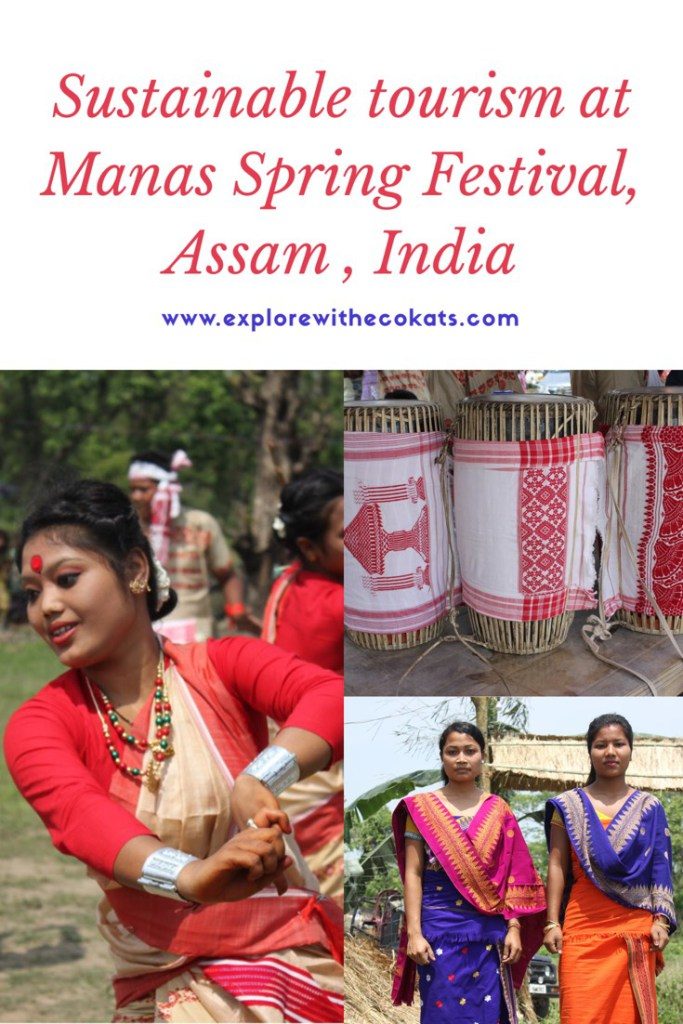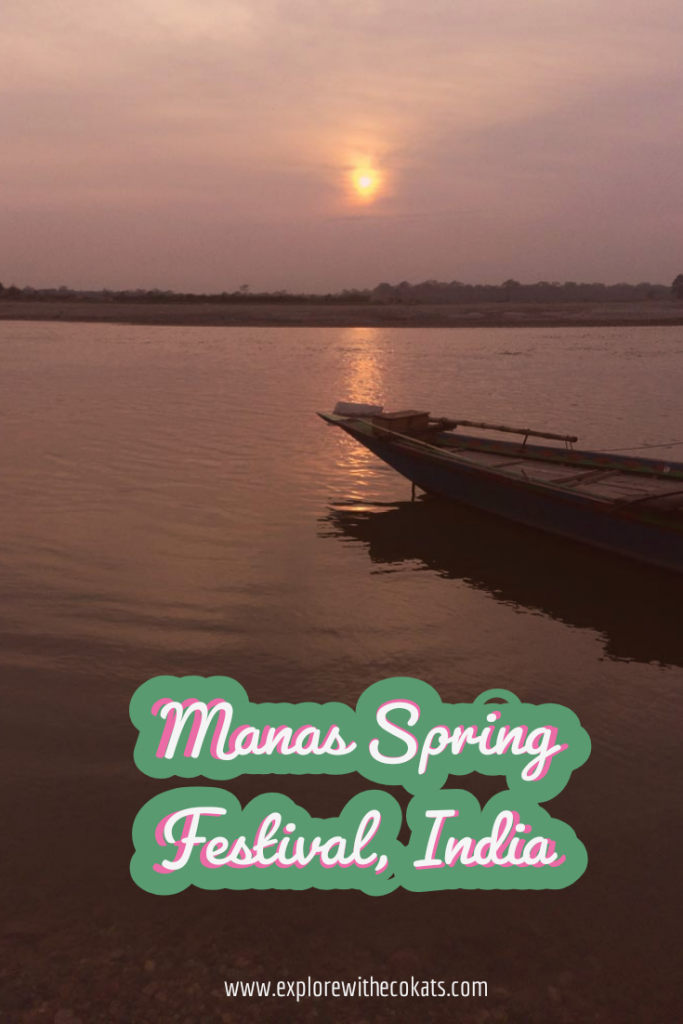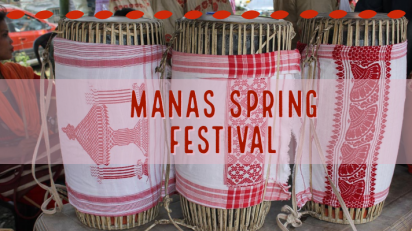Last Updated on December 21, 2020 by
Sustainability, a newer term in the urban dictionary which is uber and chic to use while writing and discussing, but difficult to practice. It makes you sit upright and think, why and how did we as a human race have to move towards unsustainable ways in the first place? I may not have the answer to this question, yet but there is a way to be sustainable while travelling. Here is a tale from the last weekend in Manas Spring Festival.
Having previously been to Manas, I was excited to visit the unconventional festival which was celebrating the spring festival in traditional clothes and getting to know the local food and culture.
I had the chance to experience rustic and traditional sustainable living in its true sense during Manas Spring Festival: 7-8 April 2018. The festival was hosted by the local Bodo tribe and curated by Indian Weavers’ Alliance, SMOA, travel agencies and others to showcase the food, nature and culture of Assam. It was organized so as to boost the local economy of villages around the fringe areas of Manas National Park.
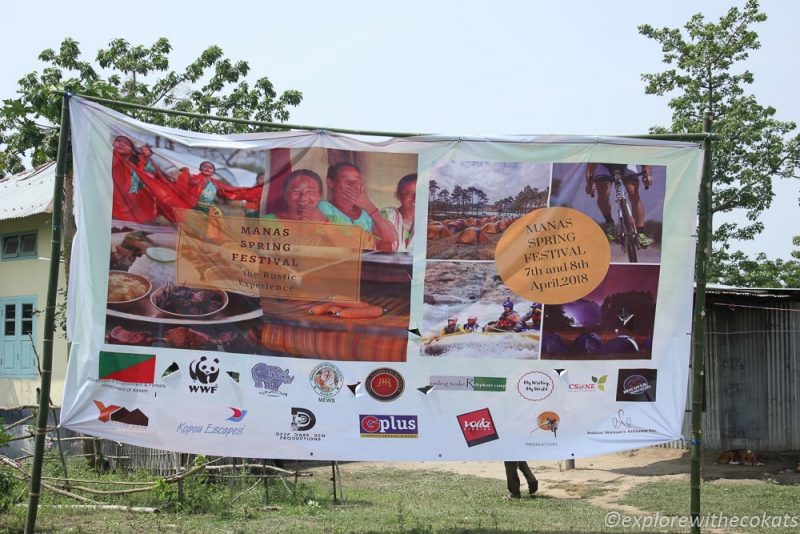
Table of Contents
Manas Spring Festival Experience: Gunzema Bodo Ethnic Experience
For this 2 day festival, transportation was arranged from Guwahati which had many pick points to chose from. A small bus full of enthusiastic travel bloggers from across the country gathered to enjoy the Manas Spring Festival.
And the journey started covering 140 km between Guwahati and Manas.
3 hours into the journey, the landscape started changing. The famous Assam tea gardens were visible on both sides of the road. The bus then turned towards the protected area and stopped at a fenced area which said Gunzema.
The area looked vibrant with tents pitched at one side, stalls on the other and a lot of local people in traditional attires.
We were excited to check out what was in store at this festival. We were allotted tents wherein we put away our luggage and started exploring around. Over the next 2 days, we experienced responsible tourism is its most authentic and rustic form.
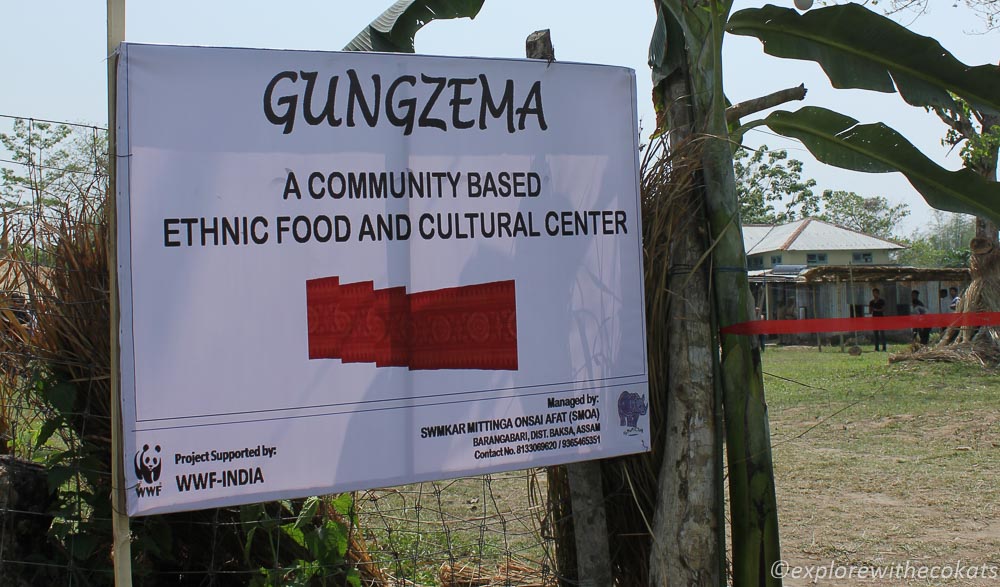
Sustainable food
Food plays the most important part of any festival and Manas Spring Festival was no different. The local villagers showed some extraordinary culinary skills to showcase lip-smacking food with locally procured produce. Freshwater fish, eel, silkworm, chicken, pork, rice, lentils, rice beer and vegetables all grown locally were the highlight of the festival.
The Bodo community even demonstrated making the dishes and beer to the curious participants. All the preparation for food was done in front of us during the festival using wood stock as fuel in the traditional chulha system. This technique not only enhanced the flavours of local produce but was extremely satisfying.
The food experience was further enhanced when this festival was inaugurated by celebrity chef Gautam Mehrishi who even cooked a few items for the participants.
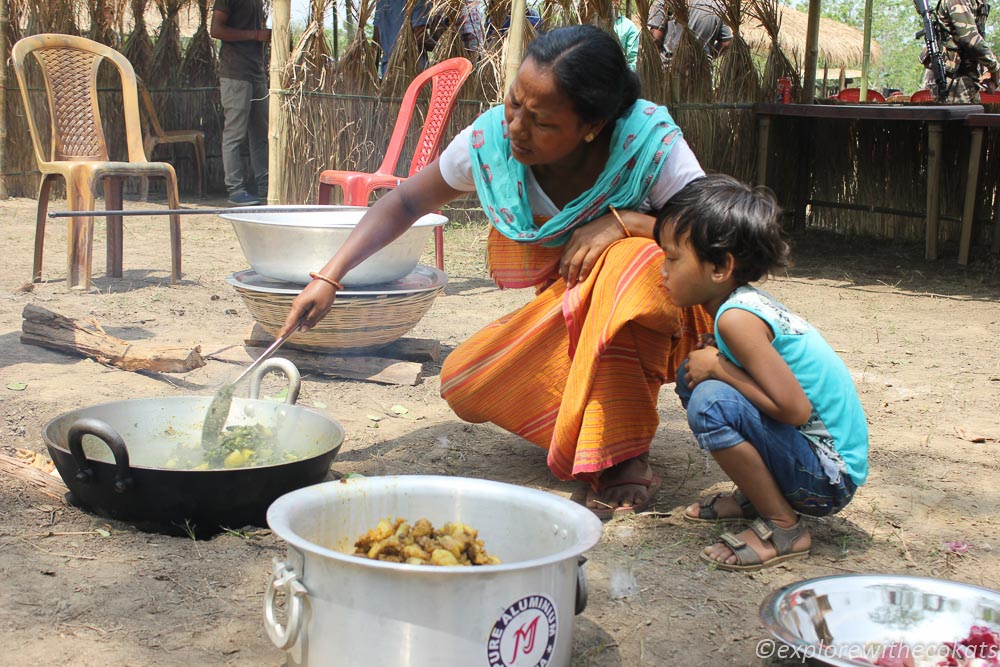
Traditional handloom showcase at Manas Spring Festival
Bodo women are known as one of the finest weavers in the entire North East region. The basic raw material used is cotton and silk which is procured from markets of Guwahati city. The traditional motifs used by the Bodo are mainly inspired by nature. The Bodo colours are shades of yellow and red as the base, with green or blue as the accent, and floral patterns inspired by nature. The looms were demonstrated during the Manas Spring festival and traditional garments like Mekhela Chador (Skirt and shawl) and Dokhna (shawl) were on sale.
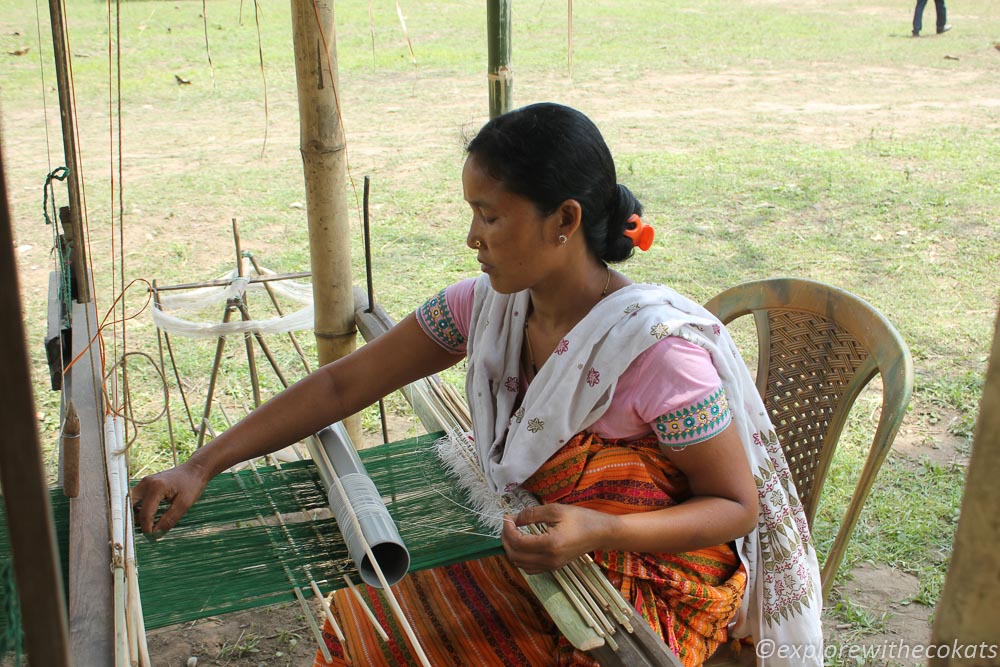
Sustainable tourism through culture
Bodo tribe is famous for their diverse culture which incorporates dancing and singing during festivals and otherwise. Bihu dance, Jhumur and Bagurumba are some of the traditional dances. All of these dances performances at Manas Spring Festival kept the tourists in awe and camera ready swaying on the beats of He he haiya he he haiya..
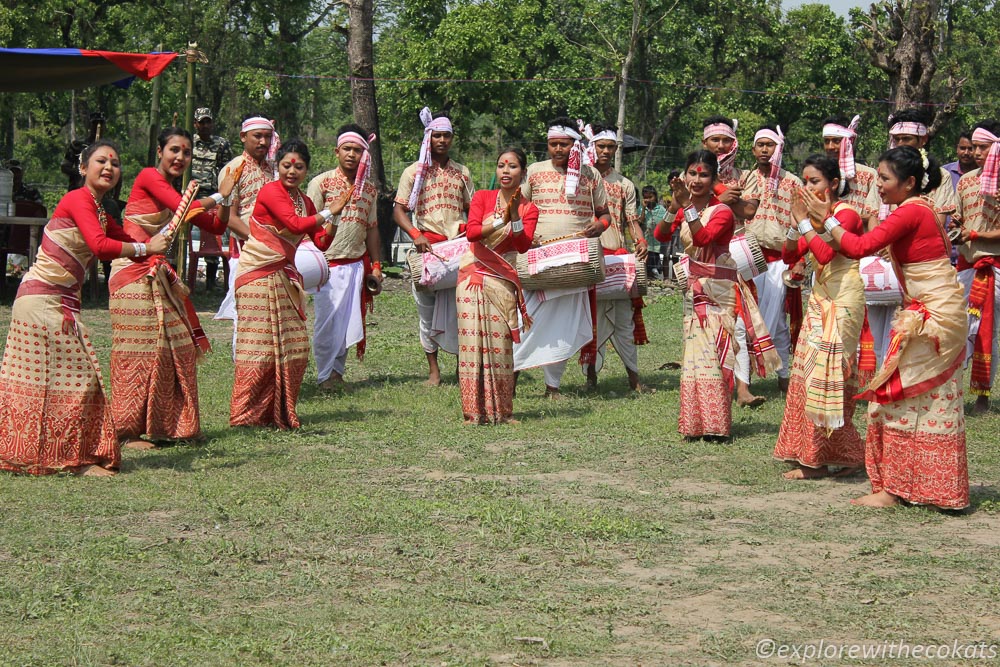
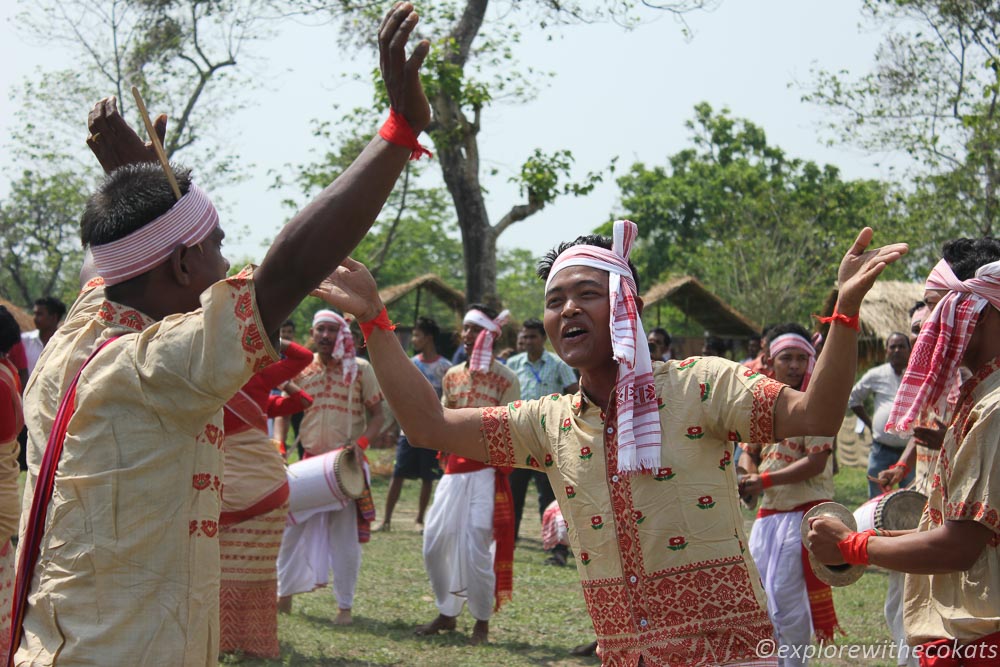
Showcasing Nature at Manas Spring Festival
Being on the fringe of Manas National Park, a safari was arranged for participants. You may have read my previous post ‘4 reasons to visit Manas National Park’ and I was excited to find even more reasons and spot more wildlife this time. But the rain gods spoiled our safari and we ended up spotting only a couple of elephants, Malabar red squirrel and a few birds. The safari made up for the rain when we reached Mathanguri on the banks of Manas River for the same charm as last time.
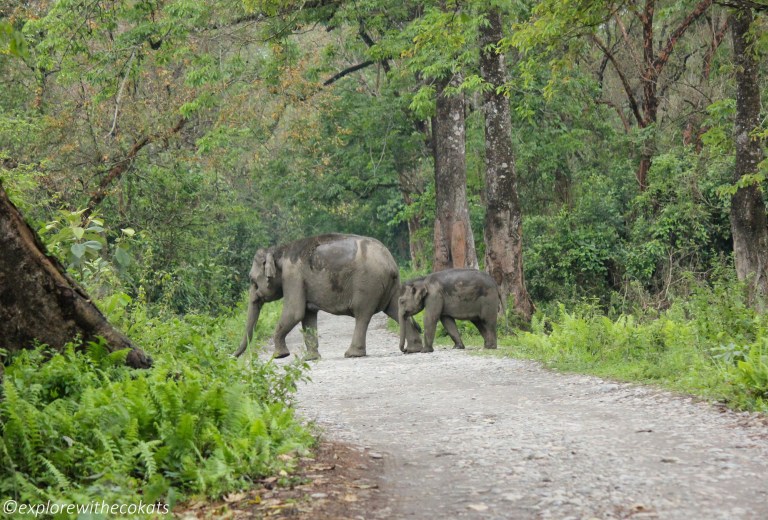
Overall experience of Manas Spring Festival
Camping in tents with no electricity, eating delicious food and knowing a tribe so close were all part of the amazing rural and sustainable tourism at Manas Spring Festival. There are efforts being made to set up a permanent market of traditional clothes, dance and food for the alternative livelihood of the Bodo tribe. If you ever happen to visit Manas National Park, do take some time out to visit Gunzema – The Bodo Ethnic Experience. The information about this centre can be procured from SMOA – Swmkar Mittinga Onsai Afat – 8133069620/9365465351
When to visit Manas Spring Festival
Manas Spring Festival will be held in the months of Spring. Check online the exact dates before planning the travel.
How to Reach Manas
By Air
The nearest airport to the Manas National Park in Assam is at Gauhati, which is around 176 km from the destination. Gauhati airport is well connected to the other parts of India through New Delhi.
By Rail
Barpeta Road is the junction which is around 32 km away from the Manas National Park. However, you can travel by train to Gauhati railway station and then travel by road Manas.
By Road
From Gauhati, take national highway number 31 to reach Barpeta road. Barpeta to Manas National Park is pretty much a straight road. From there the highway will lead you to Bansbari, which is the entry point of Manas. It will take approximately 4 hours to reach Manas National Park.
Manas Spring Festival Accommodation
While tented accommodation is available, if visitors want a more comfortable or even luxurious experience, there are many options to choose from like The Wild Tiger Resort and Musa Jungle Resort.
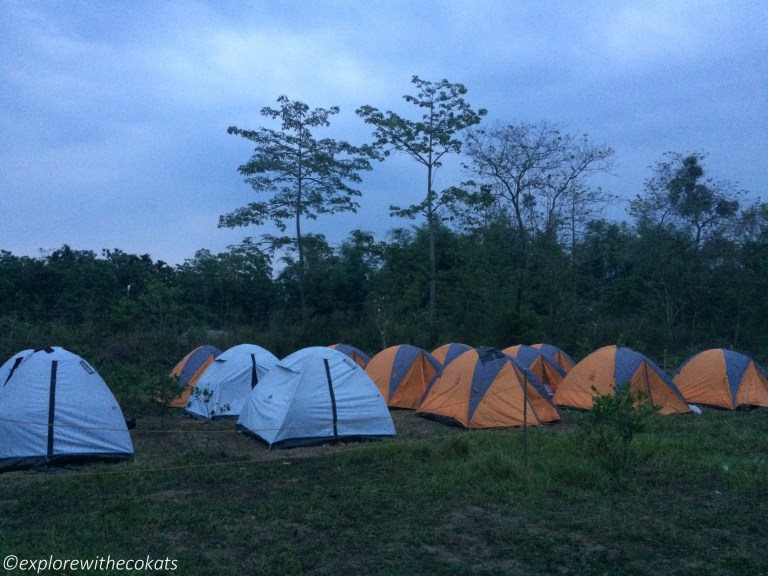
Sustainable tips for Manas Spring Festival
- The festival promotes responsible tourism by using no plastic products, using local food and cultural tourism.
- During the festival, if you take the safari, please be sensitive towards forest wildlife.
- Wear camouflage colours which will easily blend with the forest – shades of green, brown and grey.
- Do not talk loudly or make unnecessary noises in the forest.
- Avoid wearing perfumes or body spray in the forest.
- Carry water and food but do not dispose of plastic or leftover food in the forest. Keep it in your bag or vehicle and dispose of safely once you return to the hotel.
- Do not feed anything to wild animals.
I hope this blog on Manas Spring Festival helps you to plan a trip. This festival is taking place in 2021.
Disclaimer: This post contains affiliate links. It means it adds no extra cost to you if you book through the link but I get a referral bonus which helps me earn a little to keep this website up and running. Read my Privacy Policy for more.
Pin this post!
